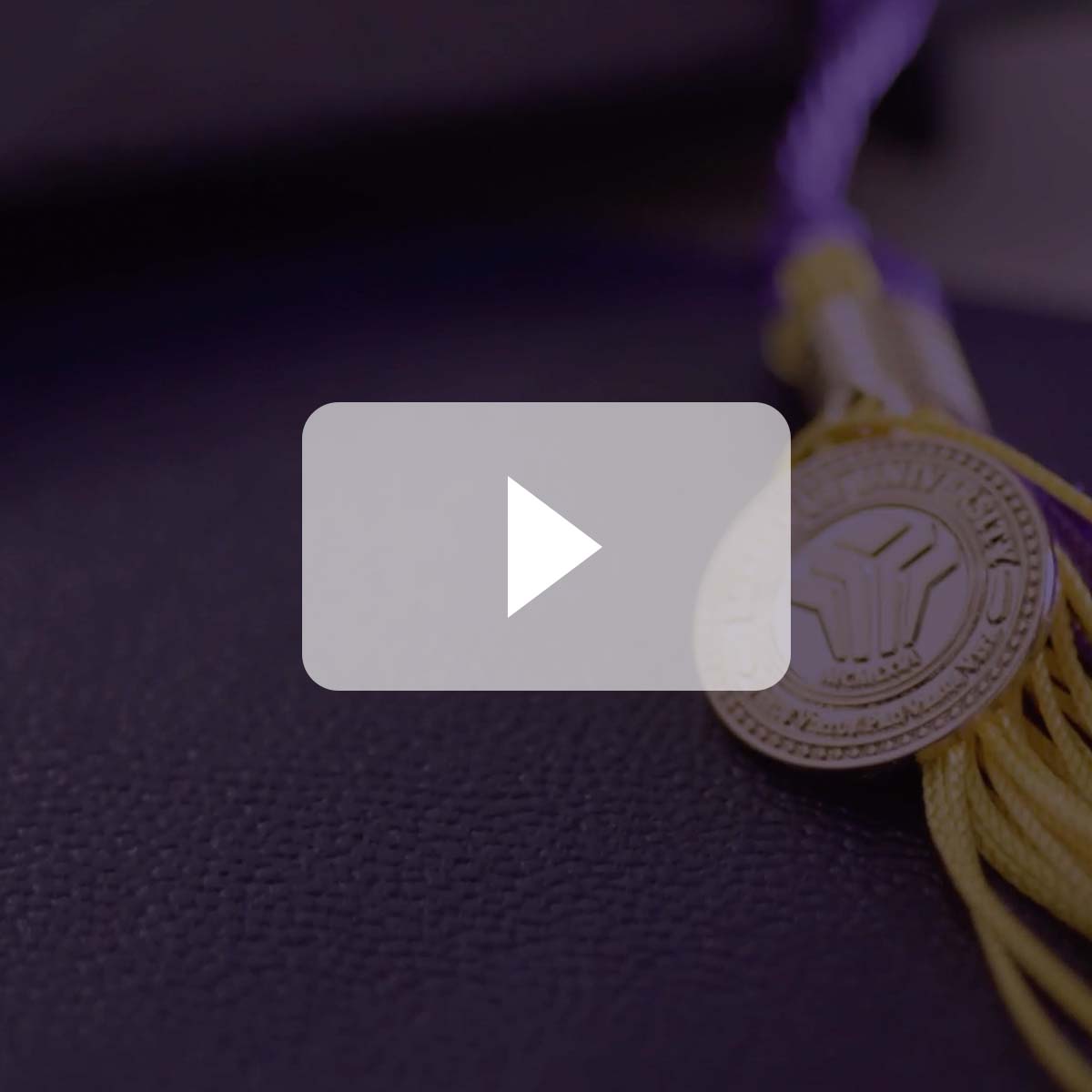Will my credits transfer? 7 things to consider.
Life happens—and it may have kept you from completing the degree you need for your future. Now that you’re thinking of finishing your degree, you can’t help but wonder, “Will my credits transfer?”
To gain a better understanding of what your path toward a degree could be like, there are a number of considerations you’ll want to keep in mind.
Will my credits transfer? 7 factors affecting whether your prior learning counts
Gaining a better understanding of what impacts your ability to transfer credits is a good starting point. Just remember that every institution is a bit different.
Accreditation is probably the most important consideration for any student asking themselves, “Will my college credits transfer?” You have the best odds of successfully applying your previous education if it was completed at an institution that has earned accreditation, which acts as a seal of approval that indicates a college meets quality standards.
“Some students went to a school that was not accredited and are now very aware of it — it’s a big concern for them,” says Kory Troutman, assistant director of regional operations at Bellevue University. “We work with these students as best we can.”
How many credits can you transfer? This really varies from one college to another. Some schools will only allow students to carry over around a dozen credits. But the best schools to transfer to will accept an entire associate degree and possibly more.
“For most two-year degrees, that would be at least 60 credit hours,” says Marche’ Robinson, a community college relationship manager for Bellevue University. “It’s easy to see that you could transfer in as a junior at Bellevue University.”
Each institution sets its own terms for what students need to complete to earn a degree at its school. Typically, students must complete a specific number of credits at their intended institution, the total number of credits their program requires, and a certain number of major requirements.
Specifics can vary widely, but schools that are known for being transfer friendly make it far easier for students to move into completing their a degree.
“A student has to take at least 30 credit hours at our school to earn a Bellevue University bachelor’s degree,” Robinson notes. The residency requirement also varies by degree type, ranging from 15 credit hours for an associate degree to 49 credit hours for a doctoral degree. Students also need to complete the total number of credits required for their particular degree program.
Students transferring from community college to university for a career-focused field, such as business, often have the clearest pathway from one school to the next. But because every college is different, it’s in your best interest to speak to each institution separately. This is especially important if you’re thinking of changing your major.
“Students who change their focus often benefit from diversifying their education,” Troutman says. He uses the example of a student who obtained an associate degree in criminal justice and then later switched to business. “You can actually combine that knowledge in criminal justice with the business piece of it to maybe fit into a certain niche that has career opportunities in either area.”
GPA thresholds are a common transfer student requirement, but they can vary both by institution and program. In some cases, students can only apply their previous coursework toward a degree if they earned incredibly high marks.
Bellevue University, for instance, recognizes any associate degree regardless of the final grade. For courses that didn’t result in a full degree, students need to meet a “C-” minimum. The one exception to note is developmental or remedial coursework, which isn’t accepted whether it was part of a degree program or not.
Another common question for transfer students is “Do college credits expire?” Some schools won’t consider courses completed before an established viable range. This is most common for classes that fall under the science, technology, engineering, and math (STEM) umbrella. On the other hand, institutions like Bellevue University want to acknowledge the learning that occurred. Troutman says Bellevue University’s approach is more focused on determining what type of support students may need to be successful in a discipline that may have evolved over the years.
It’s also worth mentioning how beneficial it can be to transfer to a school that has a formal articulation agreement with your previous college. “With our partnerships, we’re going to accept those credits,” Robinson says, adding that this remains true for associate-level graduates who spend years in the workforce before returning to college.
Even at schools with very generous transfer policies, there are cases when a student can only apply a handful of their prior coursework to a degree. While this can feel discouraging, you aren’t out of options.
Robinson lists a handful of alternative paths available to students at Bellevue University:
- Credit for work experience or training, which typically involves an evaluation
- Exams that allow students to earn college credit, including the DANTES Subject Standardized Tests (DSST), the College Level Examination Program (CLEP), and Advanced Placement (AP) exams
- Course Clusters, which allow students to complete three interrelated courses together as part of one 12-week term
Get the most out of your college credits
By now, you probably recognize that your previous coursework can be incredibly useful in helping you complete your undergraduate education at a new school. The question now isn’t so much, “Will my credits transfer?” but “What will my degree plan look like after I transfer my credits?”
While having a general understanding of what you can expect is always useful, working with admissions counselors at schools is the best way to determine how much of your existing education can go toward a bachelor’s degree. To find out what degree program could look like for you at Bellevue University, request a credit evaluation today.
Have questions about next steps? Reach out to us!
Request InfoOther resources we think you may like.
Advice for Transferring Colleges.
Transferring colleges can feel overwhelming — but it doesn't have to be. Keep these 3 things in mind.

How to Transfer Colleges
If you're looking to complete your degree, be sure to follow these 5 important steps.

Do my credits transfer? 7 things to consider.
Curious if all your credits will transfer? Read these seven considerations for college credit transfer.

How to find the best schools to transfer to: 6 factors to look for.
Learn how to find the most supportive schools for college credit transfer so that you can get the most from your experience.

Transferring from community college to university: Your step-by-step guide.
Figuring out how to balance work and college is essential for busy students. Consider these tips and tricks to successfully juggle it all.
Transfer All Your Credits
If you're headed back to school, you should get credit for all your previous coursework. Learn what makes Bellevue University a transfer-friendly college.
1000 Galvin Road South
Bellevue, Nebraska 68005
402.293.2000
402.293.2000
1.800.756.7920
1.800.756.7920
More Contact Details ›
Technical Support ›
© 2025 - Bellevue University











